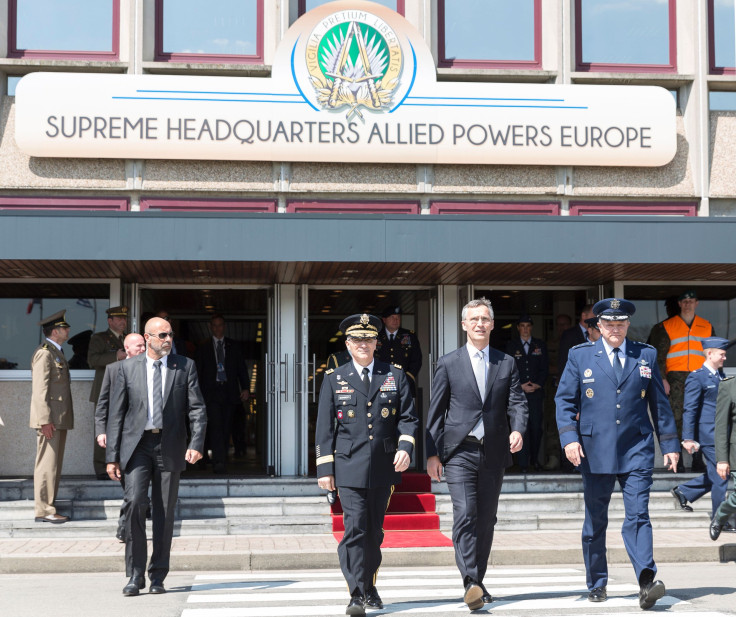NATO Foreign Ministers’ 2-Day Summit To Kick Off In Brussels

Foreign ministers from the 28 members of NATO will meet Thursday for a two-day summit in Brussels, and are expected to discuss a range of security situations outside Europe, including those in Afghanistan, Iraq, Syria and Turkey, as well as measures against Russia in eastern Europe. Additionally, Montenegro will also be inducted into the military alliance as its newest member.
NATO Secretary General Jens Stoltenberg told journalists Wednesday that NATO would discuss further support for Iraq, having “received a request from [Iraqi] Prime Minister al-Abadi to expand our training mission into Iraq itself. We will consider this request.”
The alliance will also discuss its future plans for Afghanistan, the secretary general said, which include its Resolute Support mission and financial support for Afghan forces.
In response to a question about Libya, Stoltenberg said: “NATO has a very clear mandate from our heads of state and government that we should stand ready to support the new Government of National Accord in Libya, if so requested.”
Replying to another question from a journalist from Turkey, he said: “The situation along the border between Turkey and Syria will be discussed and of course we are concerned because we have seen several attacks and we have seen also a high number of civilian casualties.”
Russia and eastern Europe will also be on the group’s agenda. Stoltenberg said: “We have already decided to enhance our forward presence in the eastern part of our alliance. Our military planners have put forward proposals of several battalions in different countries in the region. No decision has been taken on the numbers and locations.”
He added that NATO was a defensive organization and called for “more transparency in our relationship with Russia on military matters, and reduce the risk of incidents or accidents spiraling out of control.”
Calling Montenegro’s inclusion in the alliance “a clear sign that NATO continues to help build stability and security in the Western Balkans,” Stoltenberg said: “We will welcome Prime Minister [Milo] Đukanović to sign the accession protocol. Following that ceremony, Montenegro will, as of tomorrow, participate in all NATO meetings as an observer or invitee. Once all allies have ratified the protocol, Montenegro will become the 29th member of the alliance.”
The meeting will also discuss means to improve the security situations within European countries, since “NATO and EU are facing unprecedented security challenges.” The alliance will also consider means to tackle the influx of refugees from the Aegean and Mediterranean seas.
Presumptive Republican nominee Donald Trump has questioned the importance of NATO, calling it “obsolete” in an interview with the New York Times in March.
© Copyright IBTimes 2024. All rights reserved.











